Photographs: Ahmad Masood/Reuters Aneesh Phadnis in Mumbai
About a year after Kingfisher Airlines shut shop, the only one still confident of a revival of the airline is Chairman Vijay Mallya.
Just two months ago, the flamboyant promoter of Kingfisher Airlines and the UB group announced he was in talks with an investor to sell the airline.
He had given a deadline of 90 days for the sale.
But as days pass, few share Mallya’s optimism. Slowly, Indian banks are realising they aren’t left with much, in terms of their loans to the airline.
Mallya, who sold 25 per cent in his United Spirits to Diageo for $1 billion early this year, didn’t use this money to repay the loans.
. . .
Kingfisher on ground, banks' money up in the air
Image: A passenger walks with her luggage in front of a Kingfisher Airlines reservation office at the domestic airport in Mumbai October 23, 2012.Photographs: Danish Siddiqui/Reuters
The 14 banks, led by State Bank of India, which lent Rs 6,500 crore (Rs 65 billion) to the airline, are now involved in litigation over the money, as Mallya has sued them in multiple courts.
Bankers say they started the recovery process in March 2013, as the company’s dues had exceeded Rs 2,400 crore (Rs 24 billion).
Not just banks, investors and employees of Kingfisher Airlines are also going home empty-handed.
The airline’s stock has seen a steady decline -- from its peak market value of Rs 3,888 crore (Rs 38.88 billion) in 2007, the company’s value has fallen to Rs 407 crore (Rs 4.07 billion).
The stock is being quoted at about Rs 5.
The airline’s employees haven’t received salaries for the last year-and-a-half.
. . .
Kingfisher on ground, banks' money up in the air
Image: An employee holds a poster with an illustration of Vijay Mallya, chairman and chief executive of Kingfisher Airlines, during a protest march against the company in Mumbai October 5, 2012.Kingfisher Airlines took off well in 2005, even carving a niche for itself.
But a Rs 550-crore (Rs 5.5 billion) deal in 2007 to buy out Gopinath’s Deccan Airways, along with other sundry mistakes, pulled it down.
Today, Mallya owes money to banks, employees, tax officials, caterers, aircraft leasing companies, fuel supplier Hindustan Petroleum Corporation and to taxi operators, too.
Kingfisher Airlines did not respond to an email query seeking comment.
The entire aviation industry has seen difficult times.
“The reason for airlines making losses has been a high increase in fuel cost through the last couple of years, coupled with weakening of the rupee.
Further, interest costs have also increased due to the purchase of new aircraft.
. . .
Kingfisher on ground, banks' money up in the air
Image: Striking employees stand in front of the Kingfisher Airlines office during a protest march against the company in Mumbai October 5, 2012.Photographs: Danish Siddiqui/Reuters
The increased costs due to all these factors cannot be directly passed on to customers in view of the price war among airlines,” says M P Chhajed, a city-based auditor.
Banks, meanwhile, started selling shares of United Spirits and Mangalore Chemicals and Fertilisers, given as collateral against the loan, and netted about Rs 600 crore (Rs 6 billion).
That is all banks have secured so far; their recovery drive has been stymied by the airline challenging all claims against it.
In March this year, UB group moved the Bombay High Court against the sale of shares, but secured no interim relief.
In May, the lenders recalled the entire loan of about Rs 6,000 crore (Rs 60 billion), asking Mallya to return the entire amount at once.
. . .
Kingfisher on ground, banks' money up in the air
Image: Women walk past a closed booking office of Kingfisher Airlines in New Delhi October 1, 2012.Photographs: Mansi Thapliyal/Reuters
Through the last eight months, UB group and the lenders have been at loggerheads over the possession of Kingfisher House, the airline’s office in Mumbai, and Mallya’s villa in Goa. Both properties were given as security against the loan.
To recover the dues, the lenders have also filed applications in the Debt Recovery Tribunal Bengaluru.
“The presiding officer of DRT Bangalore has heard the banks, but Kingfisher's defence against the interim applications is yet to be heard.
“In the interim application, banks have sought a declaration of assets, injunction against delineation of properties, attachment of properties and such other relief,” said a banker privy to the development.
. . .
Kingfisher on ground, banks' money up in the air
Image: The exterior view of Kingfisher Villa is seen in Goa.Photographs: Reuters
“We will not be able to generate more than Rs 1,000 crore (Rs 10 billion) through the sale of shares and from the Mumbai and Goa properties,” the banker said.
Therefore, the case before DRT is crucial, as an order will allow lenders to lay claim even on Mallya’s and UB group’s personal and non-pledged assets.
However, the tribunal was overburdened and a final recovery order in the Kingfisher case might take years, lawyers say.
The Karnataka HC, while hearing a winding-up petition against the airline, asked banks to maintain status quo, with regard to the company’s Mumbai office, till December 6, as the airline said it was in talks with investors for a revival.
A local court in Goa, too, stayed banks’ attempts to take possession of Mallya’s villa in Goa.
. . .
Kingfisher on ground, banks' money up in the air
Image: A man on a motorbike rides past the factory of United Breweries Ltd (UB) that manufactures Kingfisher beer in Thiruvalluar district of Tamil Nadu.Photographs: Babu/Reuters
Two days ago, banks secured a restraint order from DRT against UB group company Kingfisher Finvest, restraining it from transferring any property or dealing with the proceeds from the sale of its shares.
If this year has been marked by acrimony, 2010 was a period of bonhomie between the airline and its lenders.
In a controversial decision in November 2010, public sector banks, failing to read the signs of a financially sick airline, restructured Rs 7,650 crore (Rs 76.5 billion) of debt, converting a portion of it into preferential shares.
The banks announced a two-year moratorium on the repayment, reduced interest and additional funding.
After the restructuring, the airline’s total debt fell to Rs 6,300 crore (Rs 63 billion).
To worsen matters, in March 2011, Rs 750 crore (Rs 7.5 billion) of preferential shares issued to banks was converted into equity shares at Rs 64.48 a share, a premium of 61 per cent.
. . .
Kingfisher on ground, banks' money up in the air
Image: A passenger walks past a near-empty Kingfisher airlines ticketing office at Mumbai's domestic airport March 27, 2012.Photographs: Vivek Prakash/Reuters
During that quarter, banks and other financial institutions held 23 per cent stake in the airline.
A year later, when the lock-in period for shareholding ended, banks started selling shares at a loss, reducing their holding to 13 per cent.
The banks had hoped the debt restructuring would provide a breather to the airline and allow it to restructure its operations.
On its part, the airline announced plans to reduce debt and make changes in its business model.
Till then, the airline ran two service models (the full-service brand and the no-frills service, introduced after the airline bought Air Deccan).
The airline estimated the reduction in finance costs and tweaking the business model would lead to gains of Rs 2,190 crore (Rs 21.9 billion).
It firmed up plans to hive off its ATR operations, loyalty programme and engineering unit into separate companies, none of which materialised.
. . .
Kingfisher on ground, banks' money up in the air
Image: Kingfisher Airlines cabin attendants serve snacks on a flight after takeoff from Mumbai's domestic airport March 20, 2012.Photographs: Vivek Prakash/Reuters
Despite a generous debt recast, the airline was unable to generate profits.
In fact, it didn’t record profits in its seven years of operations.
By March-end 2013, the airline’s accumulated losses stood at a staggering Rs 16,000 crore (Rs 160 billion).
By December 2011, about a year after the debt restructuring, SBI said Kingfisher loans had turned bad.
The bank had exposure of Rs 1,500 crore (Rs 15 billion) to the airline.
Soon, other banks declared Kingfisher loans non-performing assets.
Following this, the airline made a pitch for additional loans, but these were denied.
Then, the airline approached smaller banks in the consortium, banks that hadn’t categorised the loans as NPAs.
. . .
Kingfisher on ground, banks' money up in the air
Image: Customers stand at a Kingfisher Airlines reservation office at the domestic airport in Mumbai March 20, 2012.Photographs: Vivek Prakash/Reuters
A series of meetings between banks and Kingfisher Airline executives followed.
Mallya then made a few presentations, outlining revival plans for the airline.
In October 2012, the airline stopped operations, after engineers stopped work due to non-payment of salaries.
The Directorate General of Civil Aviation suspended the airline’s operating permit.
As for the sale of the airline, Mallya remains optimistic.
GROUNDED
- Nov 2010 : Banks restructure Rs 7,500-crore (Rs 75-billion) loan. A portion of the loan was converted into equity, fresh funding granted and repayment term extended
- January-March 2012: Banks begin to declare KFA loans as NPA after the airline fails to service interest
- October 2012: Kingfisher shuts operations
- March 2013: Lenders sell pledged shares of United Spirits and Mangalore Chemicals and Fertilisers Ltd
- April 2013: Kingfisher moves Bombay High Court against sale of shares, does not secure relief
- May 2013: Lenders recall Kingfisher's entire Rs 6,000-crore loan

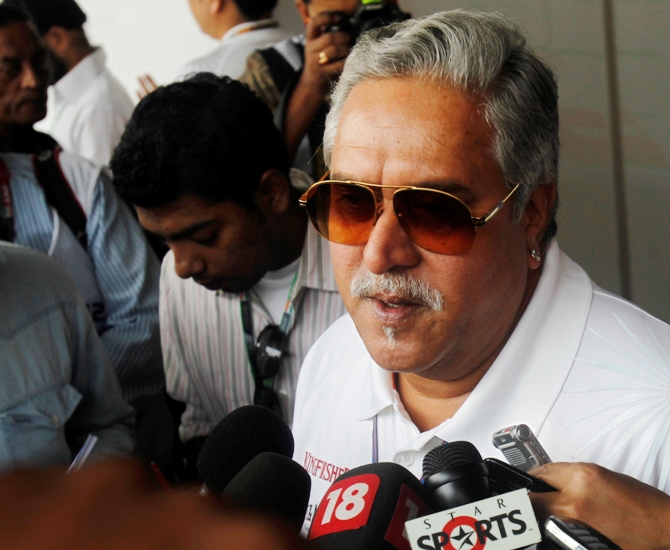
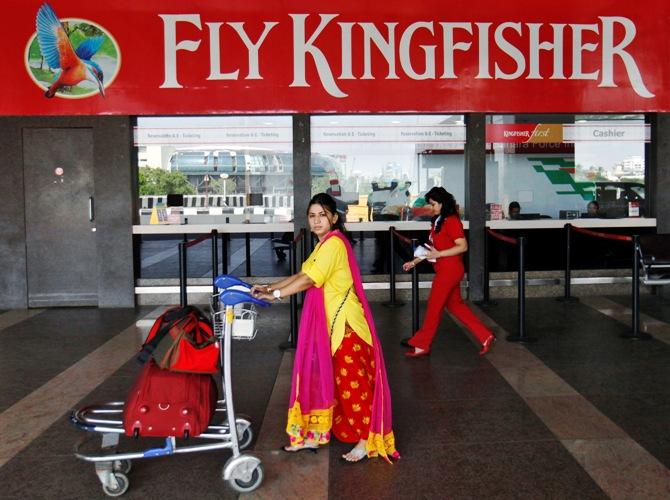
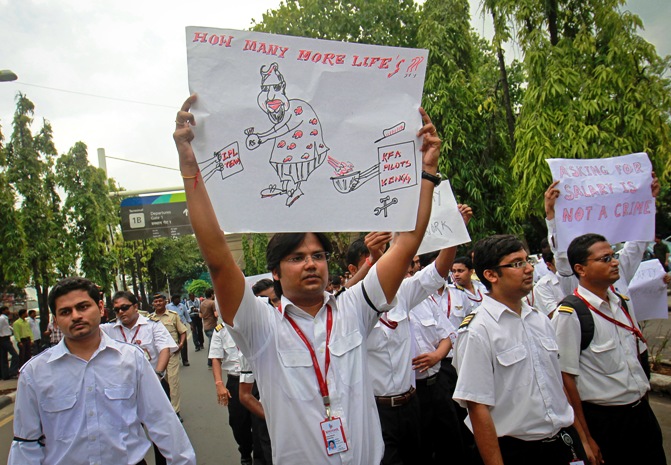
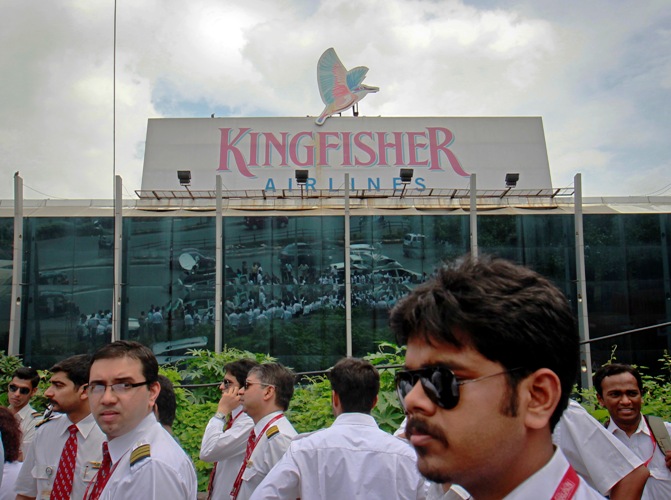
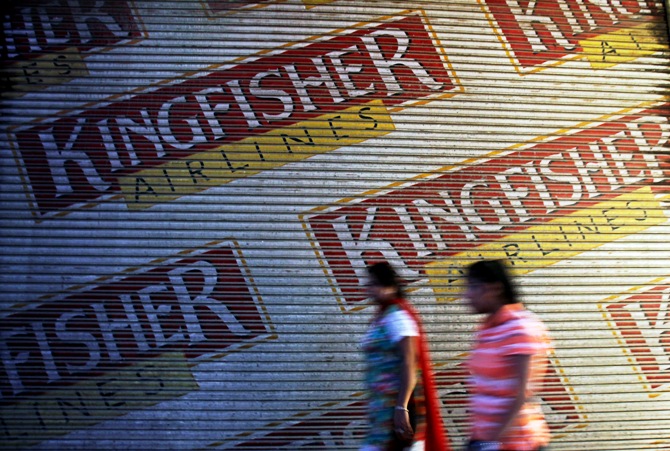
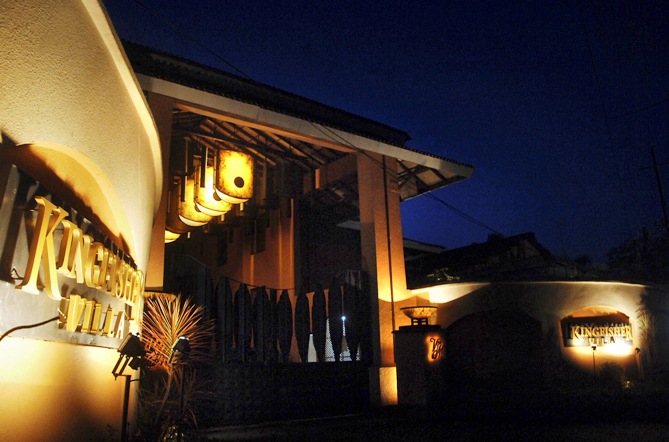
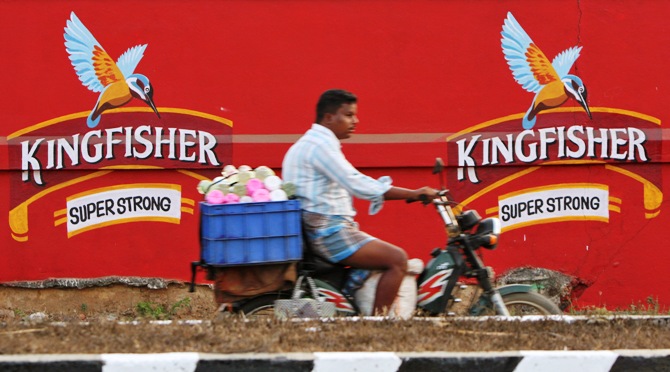
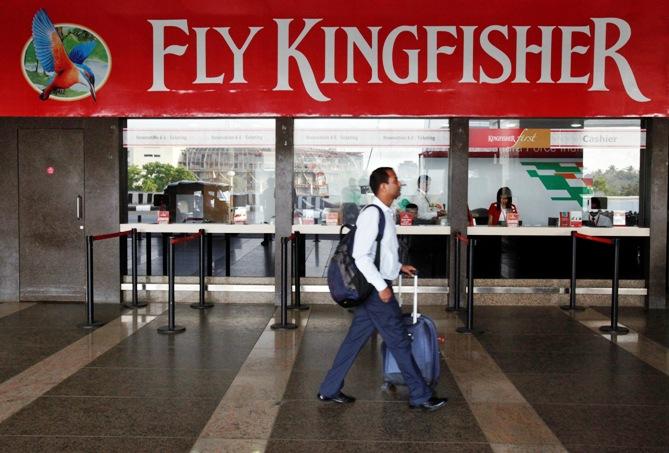

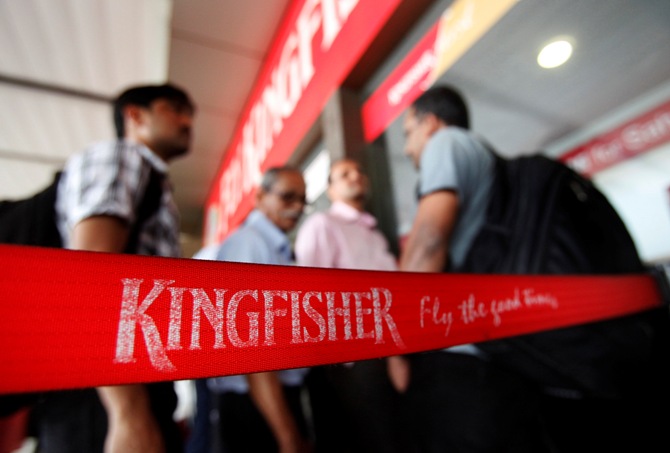

article